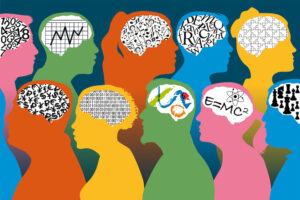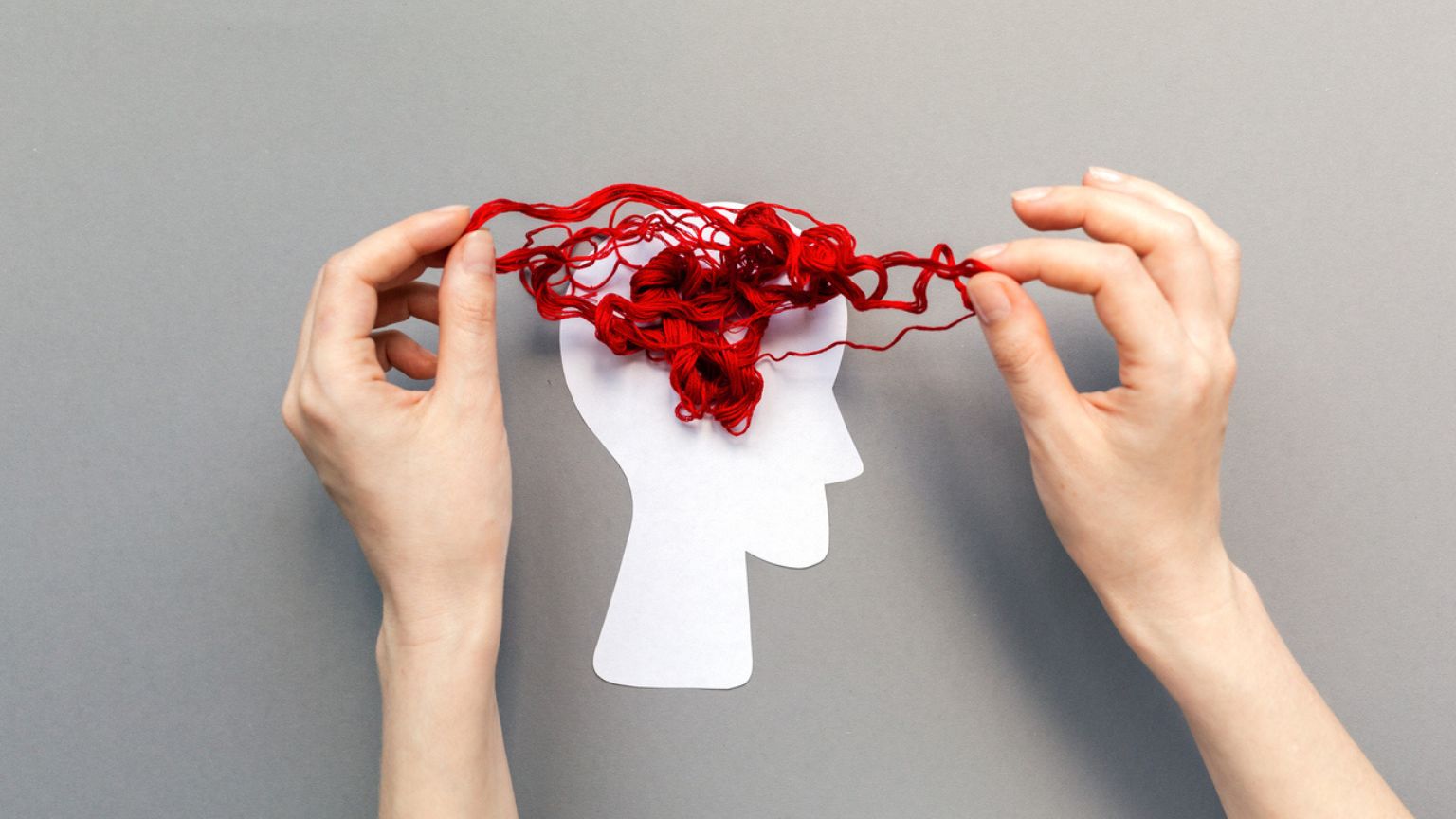Does mental health affect physical health and vice versa? Dr Amber Johnston – a clinical psychologist specialising in neuropsychology – says it absolutely does
Are we missing what’s underneath our noses?
I am Dr Amber Johnston, a Clinical Psychologist in Neuropsychology, on a mission to help people meet their brains and use them in a way that works with, rather than against them.
To do so means braving into neuroscience to explore why we think, feel, learn, and behave as we do- and then, how we can make individualised lasting change.
We are flooded with health and well-being suggestions, from cutting-edge science to health hacks and top practices for fitness and youth. Yet despite that, the statistics show a bleak picture for the state of the general public’s mental and physical health.
Despite abundant, sometimes conflicting advice, how do we use this knowledge to truly enhance our emotional and physical well-being? What are the barriers that seem to prevent us from doing all the things we know we should?
Let’s begin with review of the fundamental misunderstanding that still permeates both the general public and the medical community alike – that of the separation of mind and body.
READ MORE: Brain food: 7 key nutrients for a healthier brain

Mind vs Body
In my clinic, I see person after person coming to me for various difficulties around stress, low mood, anxiety, or just a general unease without any label to go with it.
Most want to feel better and prioritise healthy lifestyles but feel thwarted by failed change attempts. Many of these clients suffer with health symptoms like diabetes, cardiovascular irregularities, chronic pain, insomnia, auto-immune disorders, and fatigue.
Or even more commonly, they speak of medically unexplained (undiagnosed) issues – general sleep problems, stomach upset, headache, sore neck, fogginess, appetite changes, lethargy, and chest or breathing issues.
I notice and enquire about these health conditions, but the client is often surprised; after all, they’re in my office to tackle their emotions. They view their physical state as just irrelevant small talk.
This is where medical reductionism, separating psychological and physical, can be seen at its pinnacle; most paradoxically, within the healthcare system designed to best understand our brains and bodies!
The mind/body dualism is the term used to describe the separation our culture has created between the workings of the mind and the processes of the body, which reduces each to a separate pathway that must be explored and treated in isolation.
Freud and William James used medical cases to show the impact of emotion state and the unconscious mind on physical illness
Culture has altered this view over time, perhaps in an unhelpful direction. The great minds of Aristotle and Hippocrates were pioneers for the roles of the soul, mind, and humours on the physical body.
Rene Descartes separated the mental from the physical with his mind/body dualism in the 17th century, likely in response to the church deeming illness as a sign of God punishing one’s naughty soul. But later, great thinkers such as Freud and William James used medical cases to show the impact of emotion state and the unconscious mind on physical illness.
As we moved into the 20th century though, with the invention of penicillin and germ theory, the two separated again. The led to a rise of the biomedical model focusing on bacteria, virus, musculoskeletal conditions, and medicine or surgeries for treatment.
If no such condition can be identified, the ailment can only be explained through a woolly, less-understood area of abstract mental state or psychological illness, traditionally less respected and historically, not always treated humanely (think of the horror stories of old psychiatric facilities).
The dismissal of psychogenic explanations (meaning developing from psychological or social processes), left a certain fear in many people that they too might have symptoms that cast them aside from access to the more revered biomedical healthcare professionals.
READ MORE: Feeling ‘meh’? Everything you need to know about anhedonia – the missing word in mental health

Mental health DOES affect your physical health
To this day, when my clients enter my office, the conflict is still palatable. I see some patients hellbent to explain that their pain is ‘real’ and their fatigue and cardiovascular state is a ‘diagnosed’ condition… so there’s definitely nothing that a little psychology treatment can do about that.
I sympathise with the fear of rejection by medical doctors, facing unclear symptoms alone, with clients reporting experiences of implied blame that a person ‘should feel better by now’ or the treatment ‘should have made a difference if followed properly.’
All the things in your head have ‘real’ and dramatic influences across our body system
Others have felt misunderstood and abandoned when a consultant says, ‘good news, there is nothing wrong with you!’ (when clearly there is) or even the dreaded, ‘it’s probably just stress, in your head.’
Yes, of course it is. All the things in your head have ‘real’ and dramatic influences across our body system. Our thoughts and emotions do impact our physiology and can create illness over time; and in return, the signals from our body are used by our brain to understand our inner and outer worlds, creating emotions and thoughts for us to then manage.
It’s a remarkable figure of 8 interaction- signals travelling from brain down to body and back up to brain again. So that means a thought can influence a heartbeat, or a digestive response, or even impact our aging process over time.
It’s time that the entire healthcare field catches up to rewrite this antiquated medical narrative that sees body parts in isolation rather than holistically.
READ MORE: 10 ways to improve mental health at work

The amazing brain
The brain is the orchestrator of everything that we perceive and all the processes that our body needs to survive and thrive. And therefore, to ensure we enhance its functioning, it’s paramount to understand how our thought content, emotion state, behaviour react to the internal and external world from our senses and have direct impact on our physical health. They cannot be separated.
But the great news is that we can harness the power of our brains to enhance overall wellbeing. In this upcoming series, I intend to deep dive into some of the details of how our brains detect threat, learn, and make mistakes.
The brain is the orchestrator of everything
Understanding these processes will lead you to better understand where our stress originates and gets reinforced, despite our best efforts to minimise it. There are skills to learn with managing these processes, and they are not quick hacks, but the rewards feel great when they create lasting change.
Come with me to get to know the you that perhaps you’ve been missing, the brain behind your own nose….
Stay tuned for the next article in this series – ‘Is stress our friend?’, next Thursday where I discuss why some stress responses are essential.
Dr Amber Johnston is a clinical psychologist specialising in neuropsychology (healthymindpsychology.co.uk)
Like this article? Sign up to our newsletter to get more articles like this delivered straight to your inbox.





















































